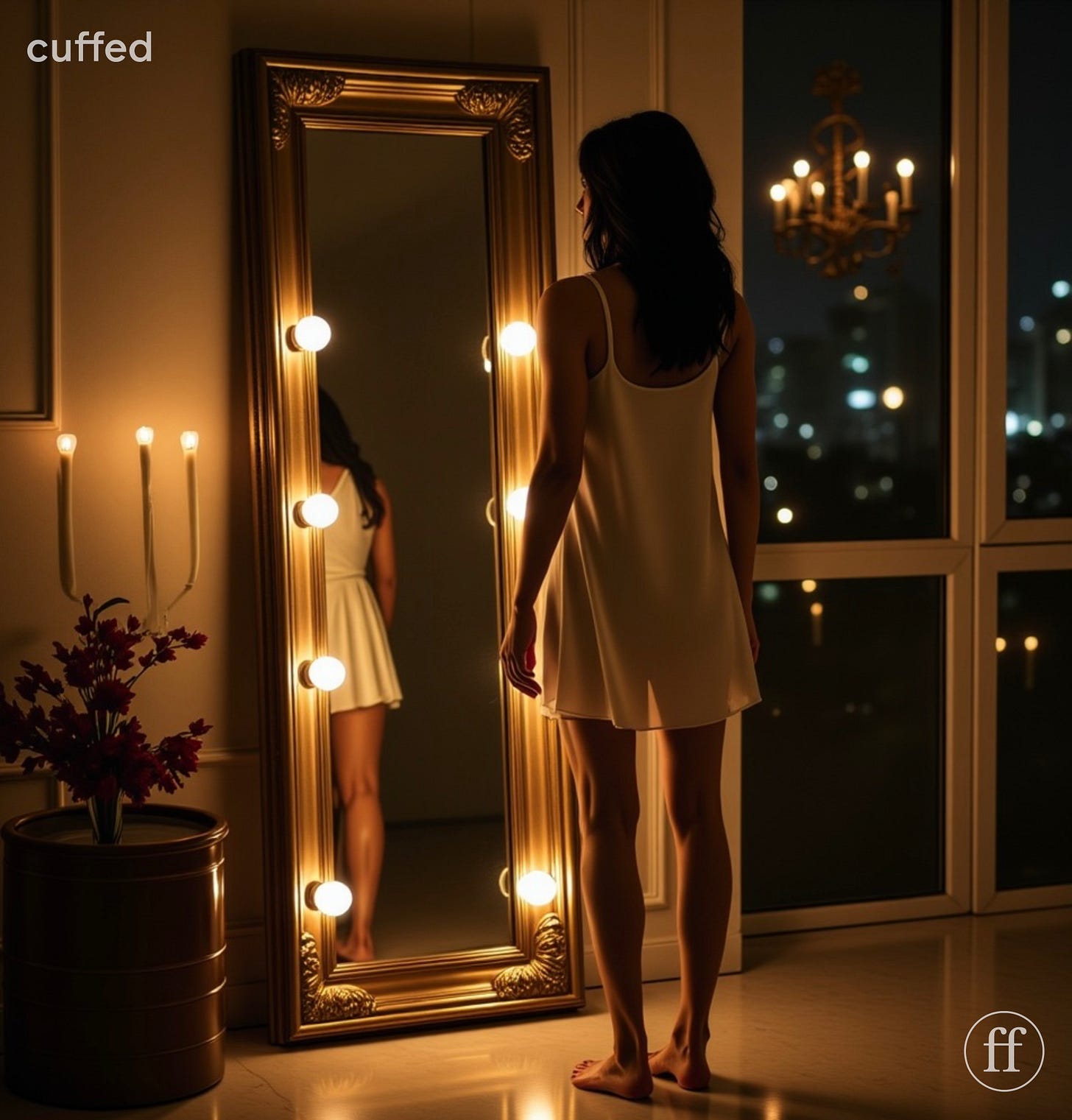where has accountability and self-awareness gone? | musing no. 40
on mirrors, restraint, and the kind of love that still hopes.
somewhere along the way, we stopped looking in the mirror.
accountability used to mean something. now, it feels like everyone’s allergic to it. we’ve built a culture obsessed with labels—trauma, attachment styles, love languages, zodiac signs—anything that lets people avoid saying the simplest, hardest truth: sometimes the problem is you.
and that’s not an attack. it’s a starting point.
i’ve been in relationships where accountability didn’t exist. one ended in divorce, another in confusion. both had the same pattern—when things went wrong, it somehow always became my fault. not because i wasn’t perfect, but because taking responsibility would’ve meant confronting the parts of themselves they didn’t want to see.
that’s what a lack of self-awareness does—it protects the ego at the expense of growth.
in my marriage, no matter how honest i tried to be, every conversation boomeranged back to me. it was like living in a house of mirrors where every reflection showed her as the victim. that constant deflection kills connection. you can’t build intimacy with someone who’s allergic to introspection.
then came another relationship, one that started with promises of empathy and depth. she told me her past pain had made her more compassionate. but when things got hard, that compassion vanished. every boundary i set was taken as rejection. every pause was called avoidance. she didn’t understand that sometimes stepping back is restraint—not withdrawal.
i know my own flaws. i’ve got a temper when i’m under pressure. i can overthink. i can retreat into silence when the weight gets heavy. but i also know when i need space to regulate. that’s self-awareness. that’s maturity. it’s not weakness—it’s control. and if you can’t see that, you’ll misread every act of restraint as abandonment.
and maybe the hardest truth is this—
sometimes you can still love someone who never met you halfway.
not out of denial, but because you’ve seen the version of them
that could’ve been unstoppable if they’d just learned to face themselves.
i’m not proud of everything i said or did.
but i showed up. i owned it. i tried to grow.
if she ever came back and said,
“i’ve thought about it. you didn’t handle everything perfectly,
but you took responsibility.
and i’m sorry i couldn’t do the same—
i was scared that if i looked too closely at myself, you’d run.”
i wouldn’t run.
because that kind of honesty is rare.
and if she ever found it, i’d give her another chance in a heartbeat.
not because i can’t let go—
but because i still believe in what we could’ve built
if we’d both shown up with that kind of truth.
the truth is, self-awareness is emotional armor.
it protects you from your worst instincts and the people who refuse to face theirs.
when you can look at yourself and say, “i could’ve handled that better,”
you take the first step toward becoming someone capable of real love.
but today’s culture doesn’t reward that.
it rewards victimhood. everyone wants to be the wounded one,
the misunderstood one, the one who was “done wrong.”
it’s social currency now. but there’s no strength in martyrdom—only stagnation.
if you want better relationships, start with better mirrors.
stop asking who hurt you long enough to ask who you’re hurting.
stop looking for someone to fix what you refuse to face.
and when someone tells you they need space,
don’t call it rejection—call it self-respect.
accountability isn’t a punishment.
it’s a gift.
it’s the moment you stop performing innocence and start practicing growth.
it’s where real intimacy begins.
because you can’t build love with someone who refuses to meet themselves first.
— author
the cuffed toolkit includes curated products and books that align with the themes of our musings—masculinity, self-awareness, restraint, and growth.
some links may be affiliate links, meaning cuffed may earn a small commission if you purchase through them, at no extra cost to you.
every recommendation is intentional and aligned with the brand’s ethos of honesty and refinement.




I generally agree with what you’re saying here. Most people will project instead of self reflect. Also, women have to understand that men react differently to situations and they should allow for that. Often times, they don’t. They expect men to react like women and I think this is because social media is programming people to have very strict boundaries. (Eg - “If he wants space he’s probably seeing someone else.” Or “If he doesn’t respond within 24-48 hours, block him.”) Honestly, these rules are ridiculous and it’s driving a wedge between the sexes.